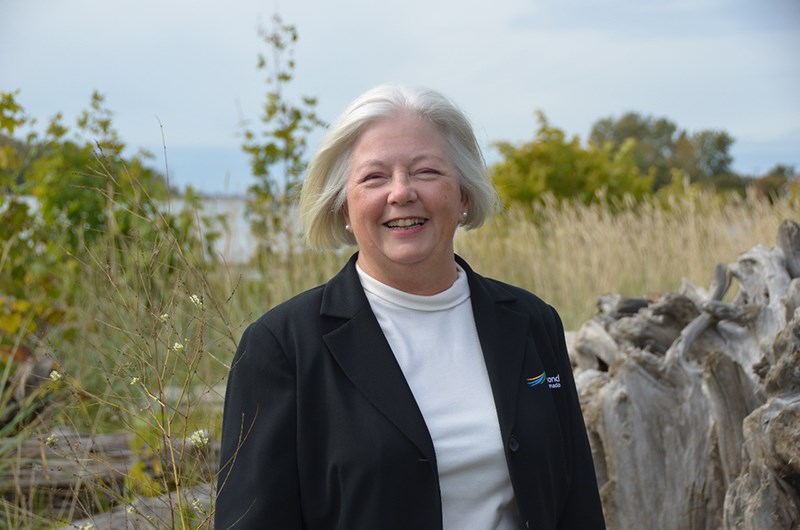Another longtime city councillor is calling it a career in politics.
After 15 years on Richmond City Council, Linda Barnes will not seek re-election, leaving at least two, empty incumbent chairs at city hall for the Nov. 15 election, after Coun. Evelina Halsey-Brandt also called it a career last month.
The two combined for 34 years of council experience.
Barnes said during her time on council she presented a voice for progressive, social issues.
“I like to think I brought more of a social conscience to the city,” Barnes told the News.
Barnes, 64, cited several projects she’s worked on and advocated for during her time on council, such as an affordable housing strategy.
“How does the city, that doesn’t have the mandate or financial reserves, put in affordable housing? But we were able to do it,” she said, alluding to the city’s development costs charges, which have funded a housing reserve over the years.
Yet despite the strategy, Barnes said housing costs are among her major issues in the city.
“My biggest concern is we will become an elitist city that only people who are wealthy can live here,” said Barnes.Recently, Barnes advocated for property tax reform for foreign homeowners in an editorial column in the Richmond News. However, she acknowledged the limitations civic politicians have on the issue.
Barnes entered politics with the backing of her union while working as a teaching assistant and youth worker at the Richmond School District. She also found support with the firefighters’ union, as her husband Brian was a Richmond firefighter.
Barnes ran on a civic platform with Coun. Harold Steves, both of whom are members of the BC NDP. Together they also championed for the retention of farmland in the city.
Barnes said it was around 1999 when Steveston faced a crossroads, when the BC Packers fish plant shut down. Development throughout Richmond was skyrocketing and Barnes said she acted as a representative for those who opposed unchecked growth.
“There was a lot of backlash with the council at that time for pro-development issues,” said Barnes, describing herself as a “regular person who (lives) down the street.”
Once elected Barnes fought for a number of initiatives to reinvigorate community participation in the village, such as the Tall Ships festival, Britannia Heritage Shipyard, the Maritime Festival as well as the Steveston Tram restoration.
“The tram should be running,” she said.
Barnes touted herself as a promoter of sustainability initiatives in the city.
“We now have a sustainability lens for all our buildings. That never existed previously. I certainly nagged a lot to make sure that’s a lens the city uses when completing projects,” said Barnes, noting the city’s geothermal initiatives in West Cambie.
Barnes also worked on the city’s substance abuse task force and anti-homelessness initiatives and was a prolific advocate of its social development strategy.
“The strategy was a way to lay a table, if you will, and invite agencies and other levels of government to the table and ask what are the roles and how can we better work together to provide the services citizens need,” she said.
Barnes said Richmond will need to continue on with the strategy, which aims to foster inclusiveness amongst different cultural groups and social agencies.



